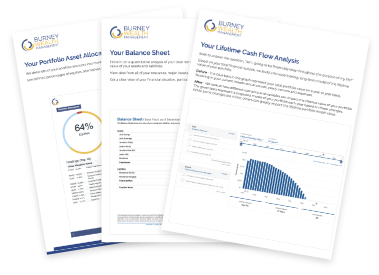You are having a child… It is time to get serious about your personal finances

Adults in their 20’s and 30’s often don’t think much about financial planning for themselves or their loved ones. They’re typically focused on paying down debt such as student loans and credit cards and perhaps finding a way to contribute to a qualified retirement account, especially if their company offers a matching contribution. It is usually not until they get married or, perhaps even more frequently, when they start having children that most people really sit down and think about their personal finances. If you have (or are having) children, we strongly recommend thinking about several different aspects of your financial life to ensure you and your family are well taken care of. We’ll highlight several key considerations in this blog post.
Emergency Fund
An emergency fund is an essential part of any family’s financial plan. A conservative estimate is to have six months’ worth of expenses in your fund. In any event that requires an urgent need for cash you should be well prepared with this much saved in an account.
Estate Planning
For parents, you absolutely want to have a will, living will, and power of attorney in place. You need to make sure the children have a guardian if you are no longer alive. It often makes sense to meet with an estate attorney to discuss these topics and to help guide you through the process.
Insurance
Health, disability, and life insurance are all important considerations to ensure that you and your family are well protected in the event you become ill or disabled for a longer period or if you die suddenly. These are not fun topics and many people don’t like thinking or talking about them but they are extremely important.
For healthcare savings, you should consider contributing to a Health Savings Account (HSA) if you have a high-deductible plan. HSA plans offer a triple tax benefit: 1) Contributions to an HSA are 100% tax deductible (up to the legal limit) 2) Withdrawals to pay qualified medical expenses, including dental and vision, are never taxed and 3) Interest earnings accumulate tax-deferred, and if used to pay qualified medical expenses, are tax-free.
Regarding disability, according to the Social Security Administration, more than 1-in-4 20-year-olds will become disabled for some period before reaching retirement. Often, Social Security Administration and workers compensation payments are simply not enough to cover the cost of missing work and supporting your family. You should seriously look at the disability benefits offered through your employer and if they are not enough you should consult a financial advisor if you are unsure of what amount is appropriate coverage.
Regarding life insurance, you need to make sure your family is taken care of if you die. A good financial advisor will take you through an analysis to determine what is an appropriate amount of life insurance to purchase. Typically, term insurance is the least expensive way to get coverage and is usually appropriate for most young families in their 20’s, 30’s, and 40’s. Of course, exceptions apply and you should talk to an advisor if you are unsure what amount, if any, makes sense for you.
Education Savings
529 plans are a great way to save for the future education expenses of your children. Plans usually differ by state so it is best that you check the internet or consult a financial advisor to see what your options are. You should set up automatic contributions to this account, a tax-advantaged savings vehicle to invest and later withdraw funds for qualified education expenses tax-free. Most plans have at least a couple of different investment options, but plan fees will vary so be sure to do some due diligence before setting up an account.
Retirement Savings
Finally, once you have all the above taken care of, you absolutely want to start saving for your future. The power of compound interest cannot be understated. If you’re curious, just Google “power of compound interest” and the specific examples of investing early and often versus delaying will knock your socks off. First and foremost, if your employer offers a match on a qualified retirement plan you should do whatever you can to contribute. They are essentially giving you free money so you should try to contribute at least the amount that makes the employer contribute their maximum. In addition, there are many other savings and retirement account types to consider, including IRA’s and Roth IRA’s. There are a host of considerations around what kind of account(s) you should have, how much you can contribute, etc. Any good financial advisor will be able to take a comprehensive view of your entire financial life and make recommendations that are appropriate for you and your family.
The Burney Company is an SEC-registered investment adviser. Burney Wealth Management is a division of the Burney Company. Registration with the SEC or any state securities authority does not imply that Burney Company or any of its principals or employees possesses a particular level of skill or training in the investment advisory business or any other business. Burney Company does not provide legal, tax, or accounting advice, but offers it through third parties. Before making any financial decisions, clients should consult their legal and/or tax advisors.


